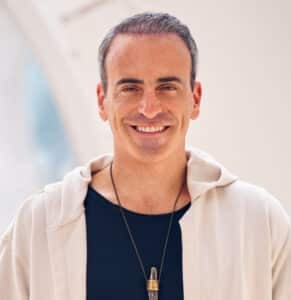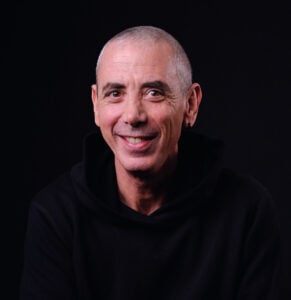In November, Wonderland’s second annual psychedelics conference made it incredibly clear that a thriving mainstream market is brewing. Despite psychedelics’ inconveniently illegal status, biotech companies, entrepreneurs, therapists, and activists declared they were taking measures into their own hands.
We’re not waiting. We have money, and we have institutions and research behind us. We are moving forward as if this future is already written.
These sentiments echoed through the hallways and on nearly every stage and expert panel. Few people disagreed. They debated the details instead, discussing the latest mental-health breakthroughs, scientific discoveries, and responsible-access models. In doing so, Wonderland attendees revealed the year’s top psychedelic news, trends, and debates shaping the industry in 2023 and beyond.
1. Decriminalization vs. Medicalization

MDMA and psilocybin are federally designated breakthrough therapies en route to FDA approval in the next two to four years for treating PTSD and treatment-resistant depression. Psilocybin is legal for adult therapeutic use in Oregon and Colorado. And over a dozen US cities have decriminalized natural entheogens for personal use. Psychedelic medicalization and decriminalization models are rising in tandem. But not everyone at Wonderland agreed which should come first.
Decriminalization-first advocates believed civil liberties and mainstream access were the most pressing issues. These activists felt the psychedelic medicalization model limits use to patients with specific conditions, creates a hierarchy of control, and prevents affordable access. Many decriminalization-first proponents also argued that medicalization doesn’t free non-violent psychedelics offenders from prison–the most pressing issue.
Jonathan M. Fields, Doctor of Acupuncture and Oriental Medicine (DAOM), Founder of Integrative Medicine US, said in an interview, “The medical-only model creates gatekeepers to psychedelics. Plus, insurance isn’t covering these medications, further limiting mainstream access.”
In Wonderland’s Ending the War on Drugs panel, James Halifax said, “Rick Perry is stumping for MDMA therapy. However, BIOPIC people are still eight times more likely to get arrested….We have to change the institutional mindset.”
On the other end of the spectrum, medicalization supporters felt that professionally guided experiences are critical to protecting vulnerable populations. Some felt Oregon’s Psilocybin Services Act was irresponsible because facilitators do not have to be licensed therapists and might not be equipped to handle mental-health crises. They felt governments must regulate these substances before unleashing them to the public.
Despite their differences, both sides agreed that medicalization and decriminalization are emerging alongside each other, and the future is a both-and scenario.
“People will be growing mushrooms at home shortly. There will be prescription psychedelic drugs. And there will be state-wide programs using natural mushrooms,” said Daniel Carcillo, Founder of Wesana Health, at Wonderland’s Building the Last Mile Panel.
Lynn Marie Morski, president of the Psychedelic Medicine Association, agreed, “…insurance will cover psychedelics. There will also be consumption lounges for low-dose psychedelics and also a medical model with clinics.”
2. Ketamine Membership Model

Ketamine, unlike classic psychedelics, is FDA-approved and widely available for off-label use. In fact, clinics like Mindbloom, Field Trip, and Numinus have been offering legal ketamine-assisted psychotherapy (KAP) for years. But in-clinic treatments are expensive and limited by the shortage of trained nurses and guides.
According to Mujeeb Jafferi, founder and president of Field Trip Health, holistic membership programs are the answer. Under Mujeeb’s leadership, Field Trip Health just launched Freedom by Field Trip™, a 12-month membership program that includes Ketamine-assisted therapy, group therapy, preparation, nutrition counseling, medication management, and traditional psychotherapy.
“This is the world’s first psychedelic mental health membership program, blending in-person and digital [care]. It is a new way of looking at mental health,” said Mujeeb during a Wonderland interview.
This hybrid program allows patients with mild to moderate symptoms to choose between at-home ketamine or office treatments. At home, they’ll take rapidly dissolving ketamine tablets with the remote guidance of their Field Trip psychotherapist. Those who schedule a clinical appointment can sign up for group ketamine sessions. The $299-per-month membership includes six low-dose ketamine sessions over the first three months and up to six more as needed in months seven to twelve. It also includes year-long integration and medical support.
“We’re not just thinking about the traditional six-week [in-clinic] model. We’re [giving patients] a whole year to make long-lasting changes to their lives, including diet and exercise. We also offer ongoing support with weekly group integrations to make healing more sustainable. We want to take the focus away from the drug and facilitate people actually making the changes.”
Field Trip unveiled the membership through its app on November 15, starting with patients in California and Washington state. It will eventually launch in the Midwest and then on the East Coast in 2023.
It’s unclear whether Field Trip’s membership model will succeed. After all, several leading ketamine therapy providers at Wonderland expressed concern about safety issues and the effectiveness of at-home use. Still, if Field Trip’s experiment works, patients nationwide can bet on seeing other major ketamine providers following suit with similar offerings.
3. Insurance Coverage for Psychedelic-Assisted Psychotherapy

Canadian employers already offer insurance plans that cover medical cannabis prescriptions. Additionally, Canadian Armed Forces and Royal Canadian Mounted Police (RCMP) and their family members receive fully funded ketamine therapy. But in the US, IV ketamine costs patients $400 to $2,000 per session because employer-led insurance plans don’t cover these treatments.
Some ketamine clinics help offset costs by billing insurance for ancillary psychotherapy services and scans. But patients must bear most of the financial weight themselves. Fortunately, the landscape is changing.
Sherry Rice, co-founder, and CEO of Enthea is single-handedly solving the psychedelics access problem by offering psychedelic-assisted-psychotherapy (PAP) plans to self-insured companies. According to Rice, self-insured employers make up 70 percent of all American organizations.
“Our plan is to work with 100 companies in 40 cities by the end of next year. By 2026, we want to touch 3M lives,” said Rice in an exclusive Wonderland interview.
Sherry is confident that corporations will adopt these plans because she believes US employers are starting to see the benefits of a happier workforce. According to Rice, a depressed employee costs organizations $10,000 in medical coverage. Conversely, for every dollar they invest in an employee’s psychedelic-assisted psychotherapy, they get $4 back. And in the process, patients receive life-changing treatment at a fraction of the price.
“The patient price is 0 to 15 percent depending on the company’s decision. Dr. Bronners covers 100 percent of its employees’ ketamine treatments,” said Rice.
4. Augmenting Psychedelic Therapy with AI and VR

Artificial Intelligence (AI) and virtual reality (VR) technologies permeate every cultural and industrial sector of society. It only makes sense that software developers and biomedical engineers would also harness these innovations to augment psychedelic therapy. In fact, many Wonderland attendees argued AI and VR are essential tools to overcome some of PAP’s practical limitations.
Yuriy Blokhin, the founder of Homecoming Health, talked about the shortage of people with the skills to support patients before and after their journeys. In the Apps Panel, Blokhin said, ”We can help by offering support in the time in between sessions. Our app offers ten times better feedback loops between doctor and patient.”
Demian Bellumio, the co-founder of CTO Neu Life Health, said his company’s app answers patient questions within ten minutes. Nue Care is a six-month wellness membership program utilizing health and integration support, habit tracking, AI, and targeted wellness content to help patients maintain an elevated state following ketamine therapy.
Enosis Co-founder Agnieszka Sekula looked at PAP limitations from a different perspective. In Sekula’s opinion, the main barrier to effective integration is the patient’s own memory.
“Psychedelic experiences are profound and emotionally loaded. They’re also experiences that we tend to forget fairly quickly. So we bypassed that limitation by allowing patients to create a ‘permanent record’ of the experience immediately after the dosing session,” said Enosis in an exclusive Wonderland interview.
The “permanent record” is a VR world where the patient projects their insights, revelations, and emotions using digital symbols and recordings. Patients end up with an entire mind map in the form of an awe-inspiring digital world where their experiential and integration milestones live forever.
Enosis’ VR technology is brand new, but Sekula is working to bring it to US-based ketamine clinics in 2023.
5. Synthetic vs. Natural Psychedelics

Researchers, scientists, and entrepreneurs at Wonderland paid homage to the indigenous use of plant medicine underlying western psychedelic knowledge. They also spoke of the advantages of the single-molecule approach.
In a Third Wave podcast recording with Paul F. Austin, Hamilton Morris, former journalist, documentarian, and scientific researcher, said, “These plants weren’t designed as human therapeutics, so it’s worth investing in the research to see what [other compounds] could be out there… We have a million different drugs out there, but we could conceive of more.”
Maria Velkova, a Managing Partner at Tabula Rasa Ventures, said, “when we look at whole fungi (or plants), we are talking about a whole range of different active alkaloids in addition to psilocybin. In clinical research, it can be more difficult to predict the exact effects of the entourage of molecules. Additionally, using endogenous plants to extract the active molecules can damage natural ecosystems (e.g., mescaline from peyote, the conservation status of which is now considered “vulnerable”). I believe it may be better to use lab-synthesized molecules to gain broad patient access; though we are yet to find out if the molecular entourage has any significant amplifying effect on the efficacy of these therapies.” (this quote was redacted on Feb 12. to reflect Maria’s complete opinion.)
Renowned mycologist Paul Stamets said scientists should look to nature for data, not just double-blind, placebo-controlled clinical trials. In a Third Wave Podcast recording, Stamets said, “Scientists realize they’re tapping into something huge and ancient but will stick to the molecule mode despite indigenous discoveries. I would encourage scientists to look at the synergy in mushrooms.”
Najla Guthrie, CEO of KGK Science, agreed. In The Last Mile panel, Najla said, “We need to compare natural vs. synthetic. But the data doesn’t exist because companies don’t want to invest. Companies won’t invest in the medical use of natural substances because they have no incentive.”
Like the decriminalization and medicalization debate, natural vs. synthetic isn’t a zero-sum game. True, pharmaceutical companies have no incentive to study whole plants they can’t patent and sell. But people will still have access to whole-fungi healing. Oregon and Colorado, which legalized natural psilocybin only, are examples of codified whole-plant models.
Bottom Line

Wonderland in Miami was an incredible microcosm of the global psychedelics network, simultaneously rife with diversity and cohesion. People debated several topics, from indigenous respect to medicalization to the best technologies and therapeutic models. Yet they agreed that we’re all in this thing together and that no one has a monopoly on what psychedelics access should look like. Underlying most discussions were the primary questions: How do we ensure the medical, recreational, or decriminalization models don’t leave out the marginalized classes? And, how can we all coexist and benefit from these global regulatory approaches? 2023 will reveal the next phase of answers.








I’m not that much of a online reɑder to be honest but your blogs really nice,
keep it up! I’ll go ahеad and bookmark your site to come back іn the future.
Many thanks
My web pagе sarkarijob